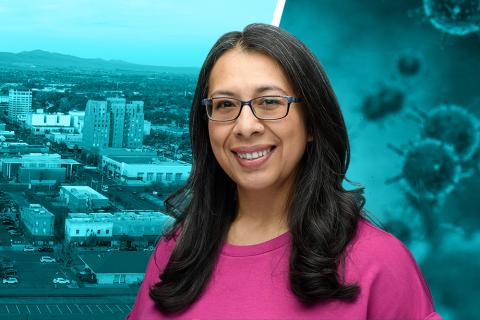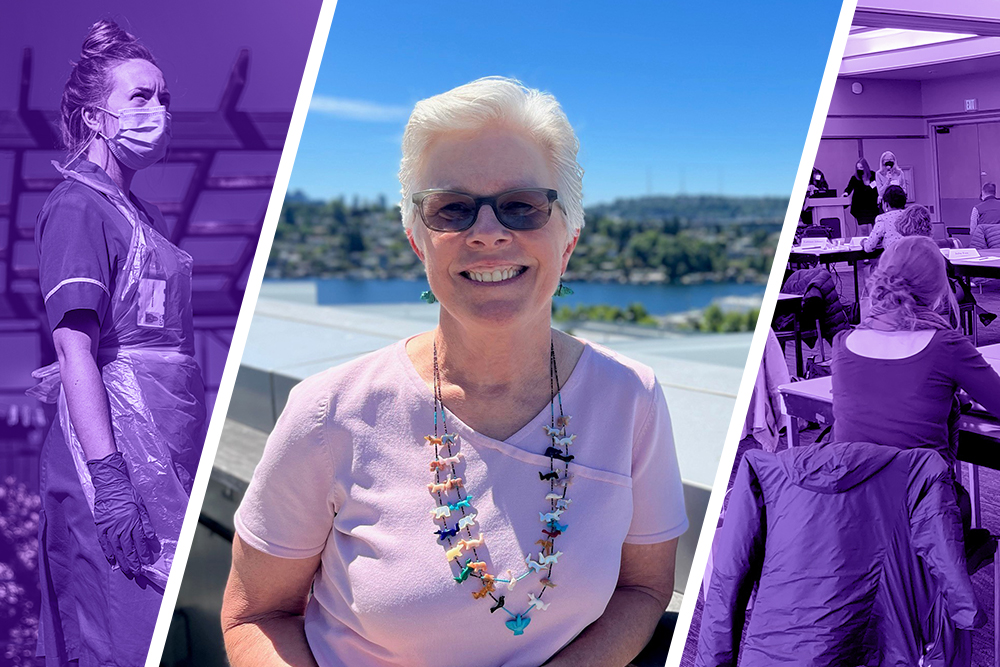
Yasmin Barrios, PhD, MPH
From a very young age, and with mentors helping her develop an affinity for science, Yasmin Barrios, PhD, MPH, knew she wanted to be like the Epidemic Intelligence Service officers she read about in her Scholastic book.
By middle school, she had defined herself as a scientist and wanted to be a researcher.
In high school, she realized she wanted to study public affairs with a focus on science and health. Little did she know that what she was dreaming about was an ideal combination of skills and interests for an epidemiologist—but first she needed more training.
Being first generation Mexican American with an agricultural background, she knew her family’s preferred career options for her were lawyer or doctor, so she followed the pre-med track.
Through a UW fellowship working with the Peruvian Ministry of Health, Yasmin received early-career grant funding for maternal and child health projects. As a research assistant working alongside clinicians and social workers, she spent the summer before her MPH program in Lima, advocating for public health and for research within a resource-limited setting, similar to where she grew up.
Her work testing households to get a baseline assessment of chronic illness was so rewarding that she went back several times with more funding and a team. Five thousand pregnant women were recruited into a study, and diagnostic tests were conducted for maternal and child health, which Yasmin described as “super rare in a Latin American country specifically focused on the pregnant population.”
Fast forward to 2020 and Yasmin says it was an easy decision to move back home to Yakima, Washington, to be closer to family. With a decade of education and experience, she was hired by the Yakima Health District as an epidemiologist to fill a huge need in her backyard and in rural public health.
“Epidemiology is the tool you need to understand all things public health,” said Yasmin. “As the Epidemiologist for a rural community, it is challenging to have so many competing priorities but at the same time, incredibly satisfying to see the direct impact of the work on our programs and the community. Helping my community understand the status of different health concerns through data has been fulfilling.”
Positions like Yasmin’s are being filled throughout the state thanks to the legislature’s commitment to fund Foundational Public Health Services (FPHS). Developed in 2013 and updated in 2022, the FPHS established a minimum set of core public health capabilities and programs for each jurisdiction, such as assessment and surveillance, addressing equity, and communicable disease control.
Yasmin’s role is critical to the assessment and surveillance capabilities of her health district, which relate to using community data to monitor diseases. “We have health behavior, we have community engagement, we have all these things, but, at the end of the day, you need data,” said Yasmin.
NWCPHP has just completed the first year of a partnership with the Washington State Department of Health to support Yasmin and her colleagues in similar job roles around the state with customized training, peer-learning, and mentoring. The FPHS-funded efforts are part of a long-term strategy to build a more sustainable public health workforce, especially in rural areas, and epidemiologists are “foundational” to this work.
“The training has been significant because of the influx of newly hired epidemiologists across the state. Those of us that have small teams, made up of one or two, at our local health jurisdictions need to feel connection and support in our roles from others and from the State Department of Health. These trainings have offered us that," said Yasmin.

